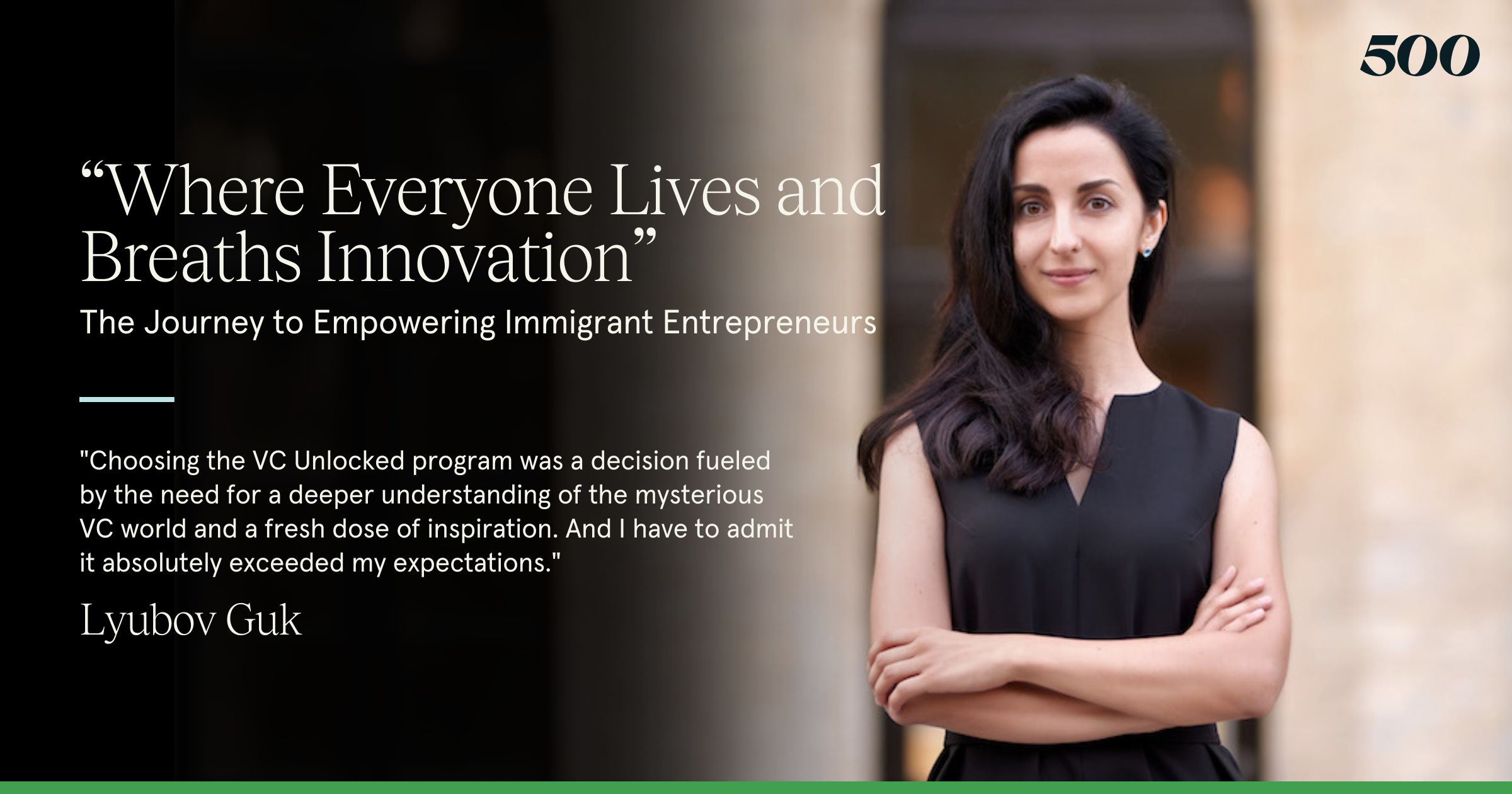Cognitive biases are systematic errors in judgment that influence decisions we make every day. They often elude detection until we look back, and our errors seem so much more obvious. As they say, hindsight is always 20/20. But when it comes to building the foundations of meaningful data consumption and analytics at startups, our cognitive bias can have real life consequences that play out in our products and ultimately on our users.
We sat down with data guru, Forbes contributor and TED speaker Ganes Kesari, co-founder and Chief Decision Scientist at Gramener, to better understand the different types of cognitive bias that can influence data and product development, and strategies to work around them.
Ganes shared his thoughts on why deeply understanding good data stewardship matters for early-stage startups, how to get the foundations in place to enable meaningful data consumption over the long-term, how leaders can champion good data stewardship, and how startups can start to see ROI linked to good data practices.
Read on for a recap of our conversation, or you can watch the full talk here.
Flawed Decision Making
Most of us like to think we’re pretty aware of our own biases. But implicit biases can be stronger than we realize. Ganes demonstrated this with a riddle early in his talk: “A father and son are in a horrible car crash that kills the father. The son is rushed to the hospital. Just as he’s about to go under the knife, the surgeon says, “I can’t operate – that boy is my son!”
How do you explain this riddle?
If you responded (correctly) that the surgeon is his mother, then you’re in the minority. Researchers that designed this riddle to test the durability of implicit gender bias, found 85% of respondents – from children to college students and beyond – failed to successfully answer it. Myself included.
The average individual makes an estimated 35,000 decisions every day. While many of these decisions are minor, others are significant. For entrepreneurs who have to make early pivotal decisions, mistakes can jeopardize the success of their company. For example, some stats assert that 92% of startups fail, and 74% of those are due to premature scaling–often because of a lack of understanding of their market, said Ganes.
A recent example he cites is Quibi. Quibi was a short-lived mobile streaming service focused on short-form content that shut down in 2020. Despite spending reportedly millions of dollars on content, people were largely unwilling to pay for the service. Ganes argued that one of the company’s mistakes was not getting enough market data before scaling its product.
As a counter-example, he describes the early days of Netflix, which began by delivering DVDs within four to five days. When the company looked into offering next-day shipping, rather than implementing this option immediately nationwide, it decided to first launch a pilot in Sacramento. Ganes recounts that next-day shipping did not impact the cancellation rate, and Netflix witnessed sign-ups thanks to word of mouth. Ganes explained this is an example of how you can disprove a hypothesis without going all in.
Important Biases and Heuristics for Founders
To mitigate the impact of our implicit biases on decision making, it’s important first to understand and identify them. Ganes highlighted three types of biases that startups are most susceptible to:
1. Inconsistent and incomplete information: Under pressure to synthesize data quickly into good decisions, founders may find themselves believing more recent events or accounts that are most representative of the present reality than older ones, only due to the order in which they occured. Weighing different pieces of data inconsistently can result in making decisions out of confirmation bias, or the illusion of different pieces of data clustering. Focusing on data quality over quantity and avoiding assumptions whenever possible are Ganes’ recommendations to fight cognitive bias.
2. Managerial blindspots: Probably the most famous managerial blind spot is the sunk-cost fallacy. We’re likely to hold on to a product or service we built even if it is not gaining traction, simply because of the amount of resources we’ve sunk into it regardless of viability. We’re willing to overlook flaws and underperformance, and it becomes increasingly challenging to cut losses and move on.
Ganes also pointed to status-quo bias as a threat to good decision-making foundations. This is the practice of sticking with something because the decision was already made and it seems more comfortable than the unknown. This can be particularly damaging to startups in the early days of building core teams and their boards, and inculcating a great culture.
3- Dysfunctional social dynamics: People tend to value things and ideas that they created, or even partially created. This has been coined the IKEA Effect, and as Ganes explained, it’s the phenomenon of placing much higher value on something we expended energy building. It can lead to overconfidence and too much “ownership” over ideas. Groupthink is another social dynamic to watch out for. Leaders, Ganes pointed out, play a role in challenging the dominant logic of the team to manage change. Instead, find ways to leverage collective intelligence and build a culture of diversity, inclusion and where dissent against the status quo is encouraged.
Leveraging Decision Intelligence
Ganes introduced the concept of decision intelligence to explain how we can fight cognitive bias. Decision intelligence draws from three disciplines: data science, managerial science, and social science. Data science helps surface actionable insights; managerial science aims to solve organizational problems by applying optimal management decisions; and lastly, social science helps us understand human behavior and how technology shapes it.
Ganes’ tips for getting started with implementing decision intelligence into startup culture include:
– Place equal value on business intelligence (BI) analytics as you do on AI analytics, and work to find an appropriate balance of the two.
– Rather than developing a marketing strategy from scratch, start by looking for unusual insights to disprove hypotheses you currently hold around your product or company, then convert these insights into stories to galvanize action.
– Founders should ensure they’re getting data from different reference points. Seek out other perspectives through collaboration, especially with those who have different backgrounds or interests.
As Daniel Kahneman said, “it is easier to recognize other people’s mistakes than our own.” We hope the tools Ganes shared will help founders on their journey to making more informed, accurate decisions.





